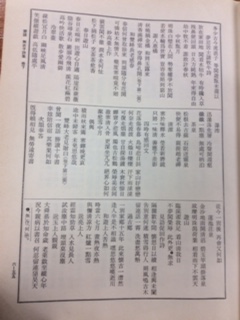"(Translation) 無衣子詩集 "茶泉""의 두 판 사이의 차이
장서각위키
(→Introduction) |
|||
| 17번째 줄: | 17번째 줄: | ||
=='''Introduction'''== | =='''Introduction'''== | ||
| + | |||
| + | National Master of True Enlightenment (眞覺國師) Hyesim (慧諶, 1178-1234), whose pen name is Muŭija (無衣子 [the unclothed]), was a Buddhist Sŏn monk during the Koryŏ dynasty (918-1392). He is known as the propagator of Sŏn (Ch'an in Chinese, Zen in Japanese) and the key word (話頭) emptiness (無) in Korea. Previously a Confucian scholar, he became Chinul's (知訥 1158-1210) [1] disciple and successor. His Sŏn philosophy is characterized by the syncretic approach of Buddhism, Taoism and Confucianism. The Muŭija sijip (無衣子詩集, Collection of Poetry by Muŭija) is renowned for its pioneering work of syncretism between literature and Sŏn philosophy. | ||
| + | |||
| + | [1] The philosophical founder of Korean Sŏn Buddhism. | ||
=='''Original Script'''== | =='''Original Script'''== | ||
2017년 7월 21일 (금) 06:19 판
| Primary Source | ||
|---|---|---|
| [[파일:|700px]] | Title | |
| English | ||
| Chinese | 無衣子詩集 | |
| Korean(RR) | 건릉지첩 | |
| Text Details | ||
| Genre | Old Documents (文書) | |
| Type | 묘비문(墓碑文) | |
| Author(s) | 尹行恁 | |
| Year | 1800 | |
| Source | ||
| Key Concepts | 묘비문(墓碑文) | |
| Translation Info | ||
| Translator(s) | Participants of 2017 Summer Hanmun Workshop (Advanced Translation Group) | |
| Editor(s) | ||
| Year | 2017 | |
Introduction
National Master of True Enlightenment (眞覺國師) Hyesim (慧諶, 1178-1234), whose pen name is Muŭija (無衣子 [the unclothed]), was a Buddhist Sŏn monk during the Koryŏ dynasty (918-1392). He is known as the propagator of Sŏn (Ch'an in Chinese, Zen in Japanese) and the key word (話頭) emptiness (無) in Korea. Previously a Confucian scholar, he became Chinul's (知訥 1158-1210) [1] disciple and successor. His Sŏn philosophy is characterized by the syncretic approach of Buddhism, Taoism and Confucianism. The Muŭija sijip (無衣子詩集, Collection of Poetry by Muŭija) is renowned for its pioneering work of syncretism between literature and Sŏn philosophy.
[1] The philosophical founder of Korean Sŏn Buddhism.
Original Script
| Classical Chinese | English |
|---|---|
|
(原文) |
(translation) |
- Discussion Questions:
